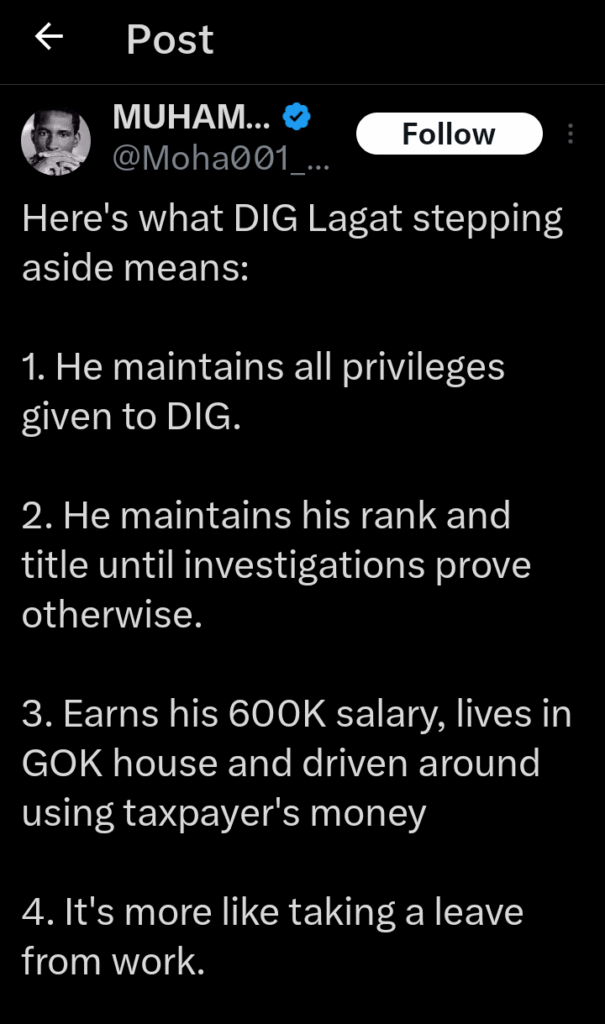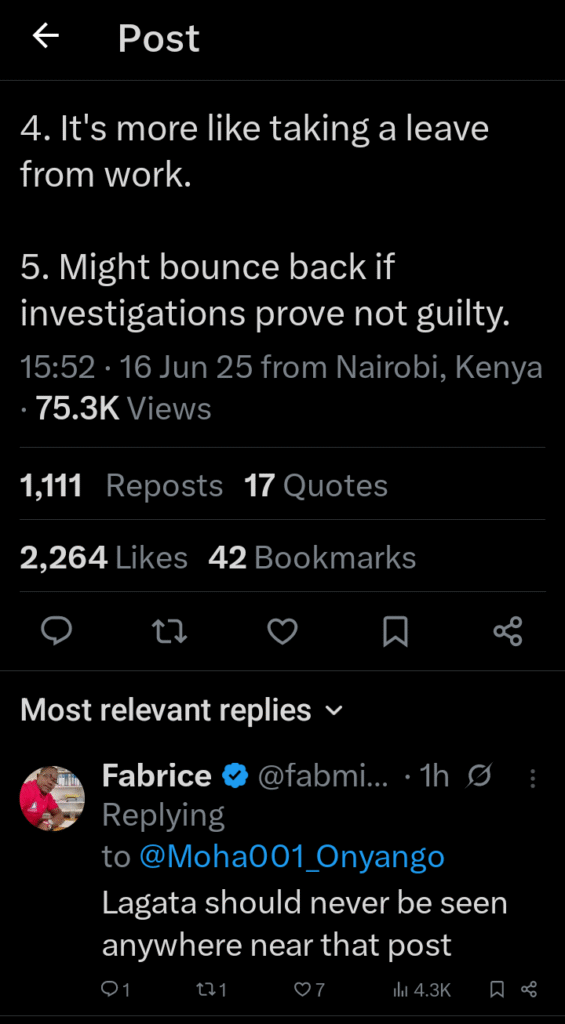DIG Eliud Lagat announced on June 16, 2025, that he would step aside from his duties as the Deputy Inspector General of Police. This came after public outrage over the death of Albert Ojwang, a teacher and blogger who died in police custody. Lagat is reported to have been the complainant in the case that led to Ojwang’s arrest.
The announcement triggered mixed reactions from the public, human rights groups, and legal experts, with many questioning if stepping aside is enough given the serious allegations involved.
When a public official like Lagat steps aside, it is not the same as resigning. Resignation means completely leaving the job, losing the title, and all the benefits that come with it.
But stepping aside simply means pausing duties while still keeping the position. Lagat has not lost his title as DIG. He still enjoys the same salary, lives in a government-provided house, and likely still uses official vehicles.

All these benefits are funded by taxpayers. Many Kenyans feel this is unfair, especially because the case involves the death of a citizen under suspicious circumstances linked to police actions.
Legal experts like Joshua Malidzo say that stepping aside has no legal meaning. According to him, it’s just a strategy to protect one’s job while waiting for the dust to settle.
If investigations do not find Lagat guilty, he may return to office. This gives the impression that stepping aside is no more than taking a break from work with the hope of coming back.
The law, including regulations from the National Police Service Commission and the Public Officers Ethics Act, does not require resignation when someone is being investigated, which is why this grey area continues to spark debate.
Public reaction has been strong, many feel that Lagat should have resigned instead of stepping aside. Some believe it would have shown respect to Ojwang’s family and allowed a more honest investigation.
Others see the move as an attempt to calm public anger without any real sacrifice. On social media platforms like X, many users criticized the timing of Lagat’s condolence message, saying it was too late and seemed forced.
Some compared the move to how politicians take short-term leaves just to avoid accountability during scandals.
Amnesty International and other rights groups have demanded Lagat’s resignation, arguing that continuing to enjoy government privileges while under investigation undermines the credibility of the police service.
Interior Cabinet Secretary Kipchumba Murkomen, however, defended the process, saying that independent institutions like the Independent Policing Oversight Authority (IPOA) should be allowed to finish investigations without interference or political pressure.
Despite Lagat stepping aside, the real question remains whether this move brings any real change. The fact that he still enjoys all the perks of his office makes it feel like a minor inconvenience instead of a meaningful action. If he is found guilty, it may lead to further action like dismissal, but if cleared, he will likely return to his post.

This uncertainty makes the public more frustrated because it shows how difficult it is to hold top officials accountable in Kenya.
DIG Lagat stepping aside looks more like a strategic pause rather than a serious step toward justice. As long as he keeps his position, salary, and benefits, many Kenyans will see it as an attempt to wait out the public anger.
The outcome of the IPOA investigation will be critical, not just for Lagat’s future, but for how the public views justice and fairness in Kenya’s security system.





















Add Comment